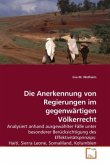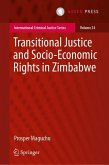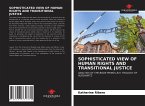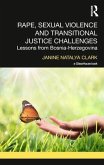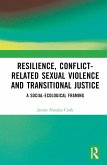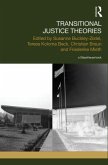In recent times, truth commissions and trials are being engaged concurrently for transitional justice in postconflict societies. This raises issues regarding their compatibility, coordination and benefits derived from such an approach to transitional justice.This book examines the Truth and Reconciliation Commission (TRC) and the Special Court for Sierra Leone, engaged by the government in collaboration with the UN in Sierra Leone's peace building process. Operating in an environment of weak coordinating systems, the TRC and Special Court were pitched against each other,undermining their respective mandates and creating tensions in their efforts to implement their plans. Also, the populace, civil society groups, the government and the UN, were divided in their sentiments and support for the two mechanisms. The implication is that the policy choice, design and packaging of restorative and retributive mechanisms should link seamlessly to the strategic goal of peace and stability. This book will be useful for scholars, governments, policy makers, the UN and especially the International Criminal Court whose intervention in a country may run parallel to a restorative process.
Bitte wählen Sie Ihr Anliegen aus.
Rechnungen
Retourenschein anfordern
Bestellstatus
Storno


